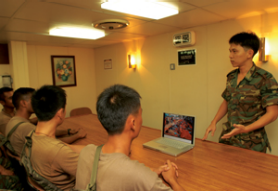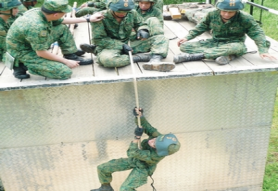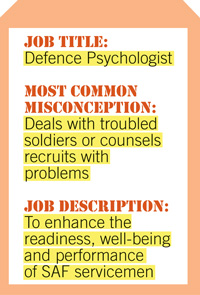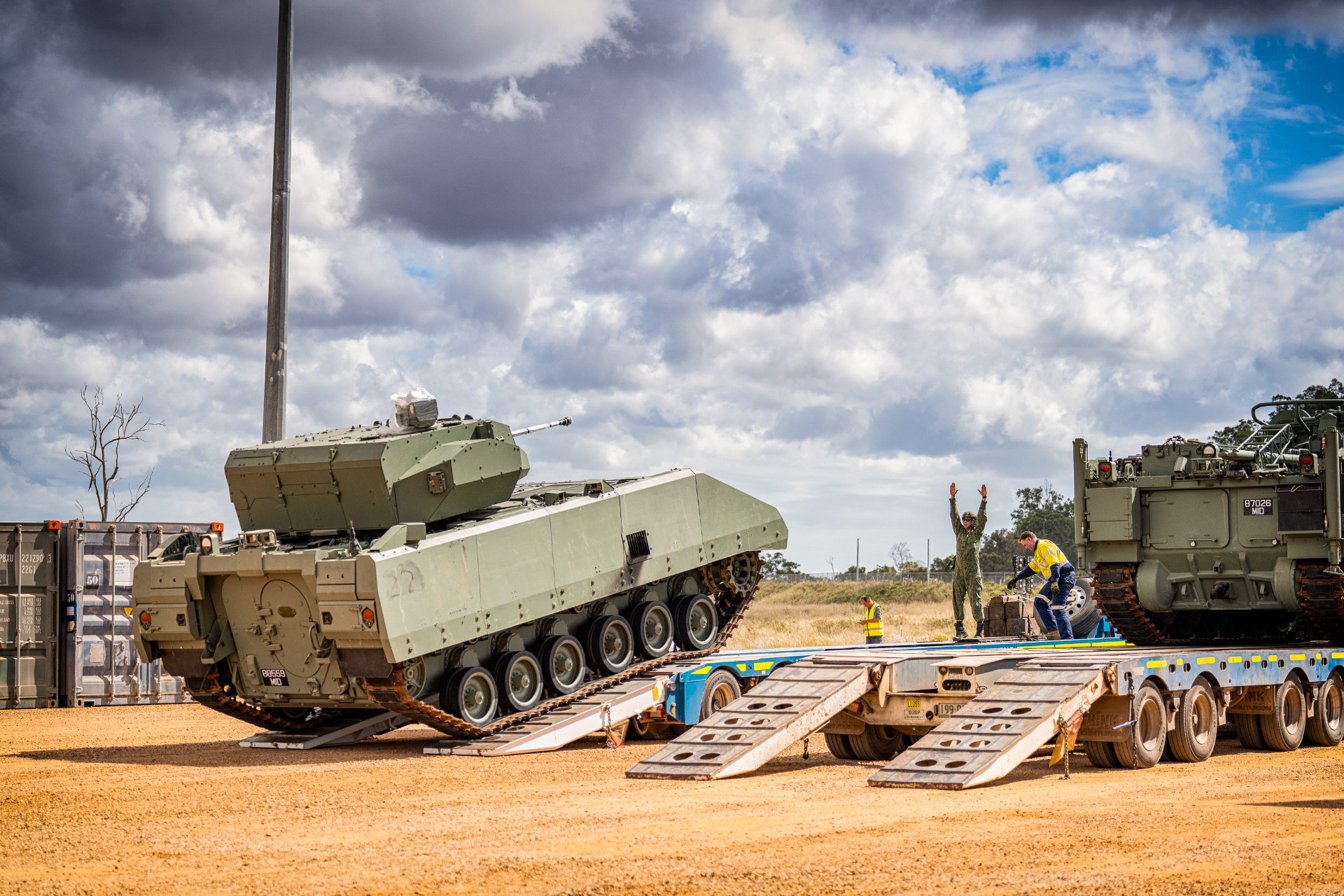OPS & TRAINING
READ MY MIND
16 Aug 2010
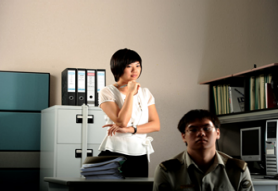
In the first of a six-part series on lesser-known vocations, we put the spotlight on defence psychologists. These men and women are no shrinks but they do get into the heads of servicemen.
"One of the most common things people initially assume when I tell them about my line of work is that I deal with troubled soldiers or counsel recruits with problems," said defence psychologist Lin Yinghan.
Contrary to popular belief, it is usually the opposite. Unlike counsellors or psychiatrists who tend to deal with individuals, the primary role of psychologists in Defence Psychology Department (DPD) - formerly known as the Applied Behavioural Sciences Department - is not to provide therapy, but to enhance the readiness, well-being and performance of various units and groups in the Singapore Armed Forces (SAF).
"The model most people have in their minds is that of a doctor who diagnoses and treats those who are sick, but psychology can also be like a vitamin - you give it to normal, healthy people to strengthen their capabilities and help them perform even better at their job," Ms Lin explained.
For a strong mind
From the deck of a Landing Ship Tank (LST) in the Northern Arabian Gulf to the hot and dusty environment of a base in Afghanistan, defence psychologists have been deployed in support of SAF troops on a variety of overseas missions.
Each mission comes with its own set of psychological challenges for the servicemen who are deployed, noted Major (MAJ) Koh Ta Chuia, Head of Training and Development in DPD. He was part of the mental health team sent with the SAF humanitarian aid task force to Aceh, Indonesia after the 2004 Boxing Day tsunami. He also visited SAF soldiers deployed in the Afghan province of Oruzgan earlier this year.
"To develop a psychological preparation programme which caters to the specific needs of that particular mission, you have to understand the nature of the mission and the operating environment," explained MAJ Koh.
During the tsunami relief mission, for instance, he held workshops with personnel from various units during their two-day journey on the LST to West Sumatra. Images of dead bodies, injured victims and grieving relatives were shown to these servicemen to prepare them for the grim scenes of mass destruction which they would likely encounter in a disaster zone.
In Afghanistan, on the other hand, MAJ Koh focused more on helping the teams to cope with the heightened stress of operating in a high-risk and regimented environment, where they faced a variety of potential threats.
"Before each mission, we also conduct psychological screenings of personnel to advise commanders about their suitability for the operation, highlight key challenges they may face and encourage them to actively think about ways to cope with the challenges," he said.
Improving the team's cohesion and communication is also an important aspect of a defence psychologist's work, added Lieutenant Colonel (LTC) Adeline Heng, Head of the Navy Psych Team in DPD, who has gone on several peace support operations to the Northern Arabian Gulf and the Gulf of Aden.
She said: "These missions often involve a diverse group of personnel from different units and Services, so we observe the team dynamics and conduct interviews and surveys to find out if there are any possible issues of concern. We then provide our feedback to the commanders and discuss ways to address these issues."
It's all in the mind
Picking the right person for the job can often be critical to success. This is especially so when placing people in critical vocations such as the bomb disposal squad or the Special Forces (SF).
Defence psychologist Kenneth Lim, for instance, helps the SF to design the rigorous selection process which all aspiring SF troopers are required to go through. These include interviews and tests which assess a person's mental abilities such as intelligence, as well as various aspects like personality traits, physical attributes, values and beliefs.
For Mr Lim, the main job satisfaction lies in making a difference in the lives of servicemen, be it through allocating people to the jobs that fit them, facilitating team-building workshops, or preparing personnel to carry out their designated tasks well.
When asked about the "ideal profile" of a psychologist, he replied: "You don't need to be a 'people person', but you should have a genuine interest in people. After all, our work centres around studying human behaviour and understanding the motivations behind it, to help them achieve their full potential."
Take the SITEST
Each year, about 15,000 recruits are put through the Situational Test, or SITEST in short, for junior commander selection. Established in 1996, this gruelling test comprises a two-day two-night field exercise, where recruits undergo a series of dynamic mission-like scenarios to assess their leadership potential.
Each recruit is given the opportunity to demonstrate his leadership potential and direct the team to accomplish mission objectives. The recruits are evaluated by trained assessors throughout the exercise, and also get to evaluate each other through peer appraisals conducted at the end of the SITEST.
"Unlike computer-administered tests, these recruits are placed under demanding physical and mental conditions to see if they can lead under difficult circumstances and still perform well even when they're feeling tired," said defence psychologist Lin Yinghan, who manages the SITEST and supervises the assessment.
ALSO READ IN OPS & TRAINING
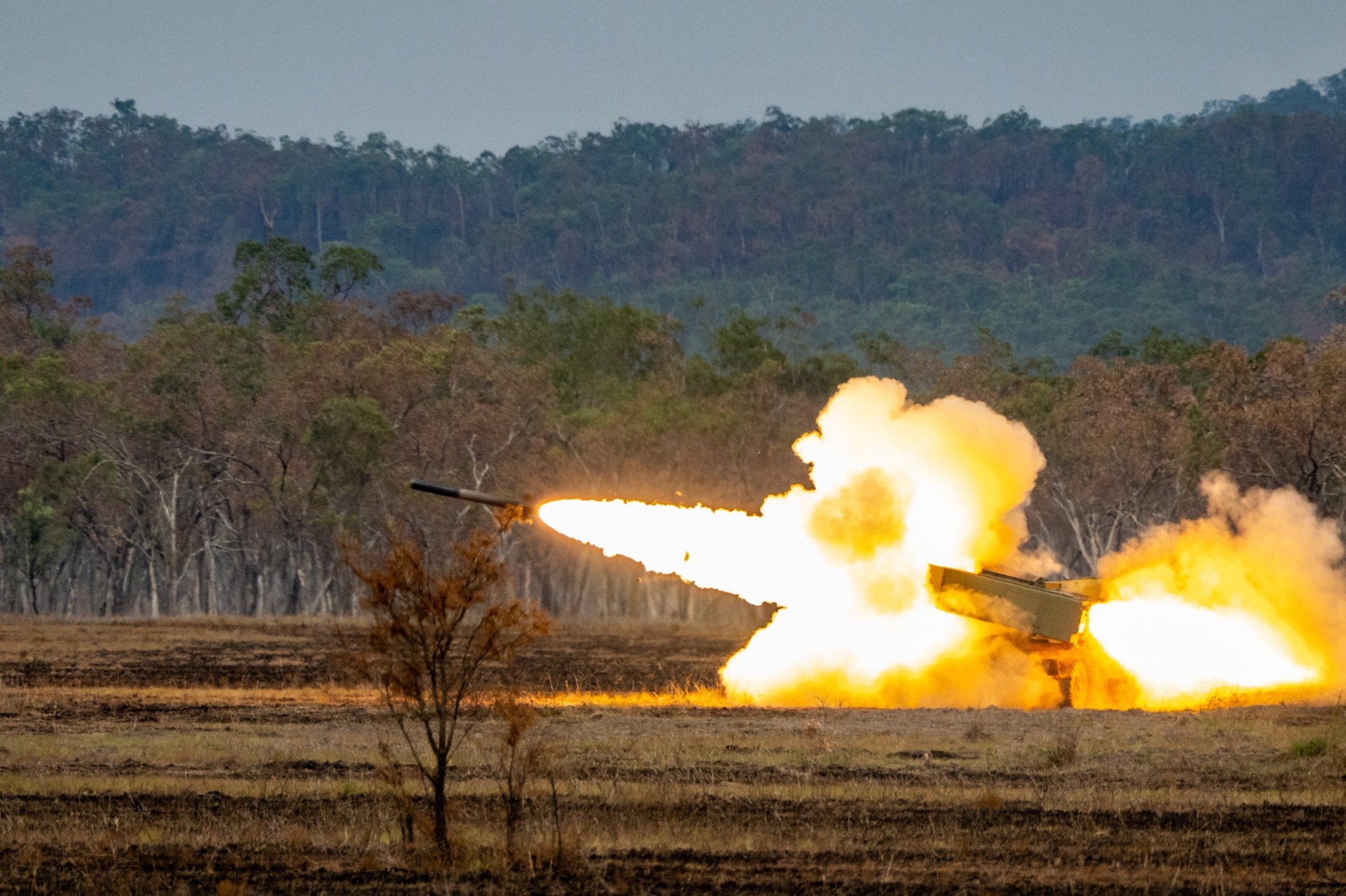
Exercise Wallaby 2025: To see better, shoot faster
31 Oct 2025
The SAF focuses on complex strike missions and multi-domain integration in Exercise Wallaby 2025, the 35th edition of its largest unilateral overseas exercise.
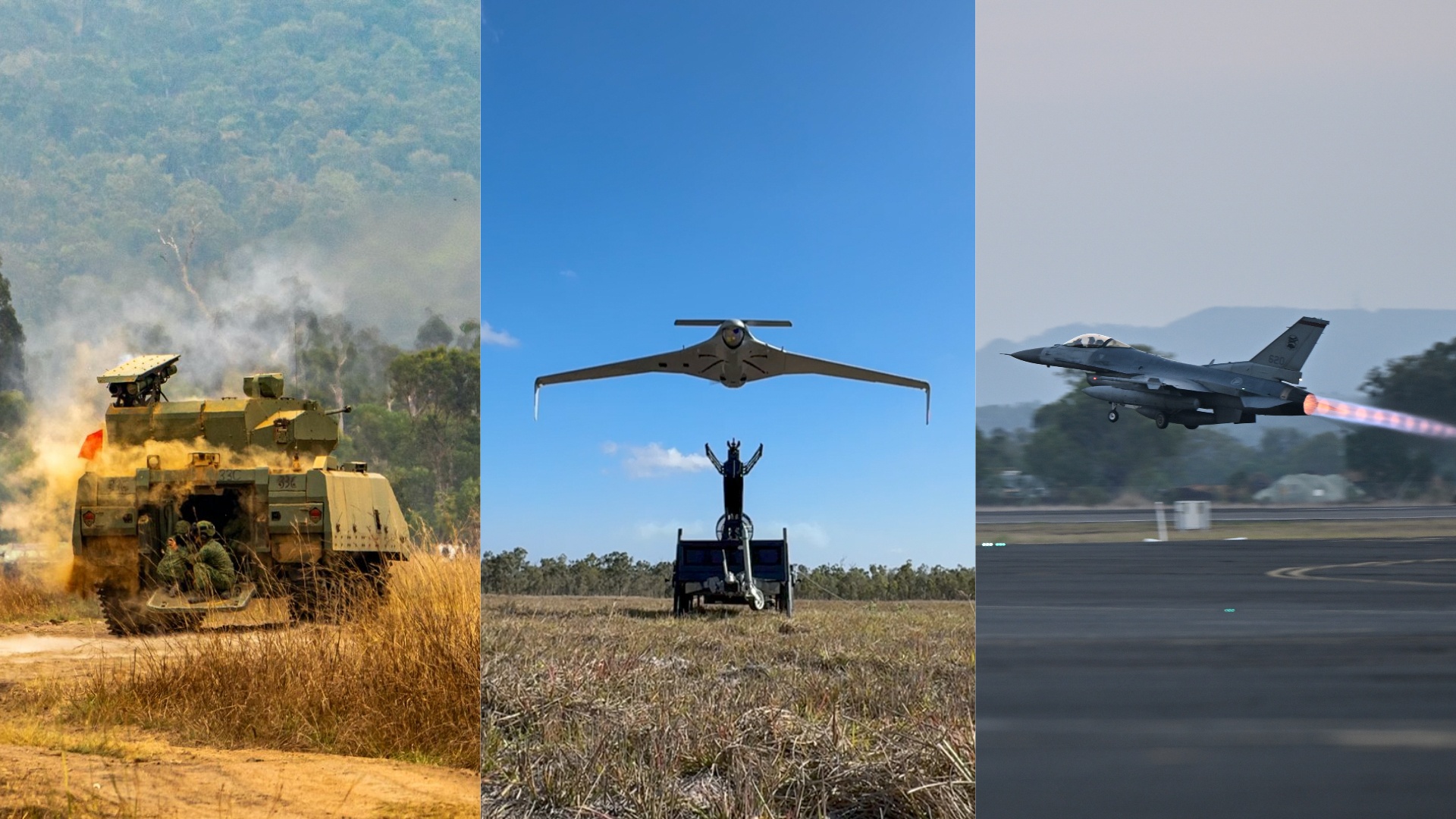
Ex Wallaby 25 – Greater Integration and Complexity
25 Oct 2025
The 35th edition of the SAF’s largest unilateral overseas exercise is an opportunity for expanded scale and deeper integration towards an effective, networked fighting force.

Ex Forging Sabre ramps up use of unmanned assets in integrated strike operations
12 Sep 2025
In this 10th edition of Exercise Forging Sabre, the SAF sharpened its cutting edge for the dynamic modern battlefield, with expanded integration between manned and unmanned platforms.


